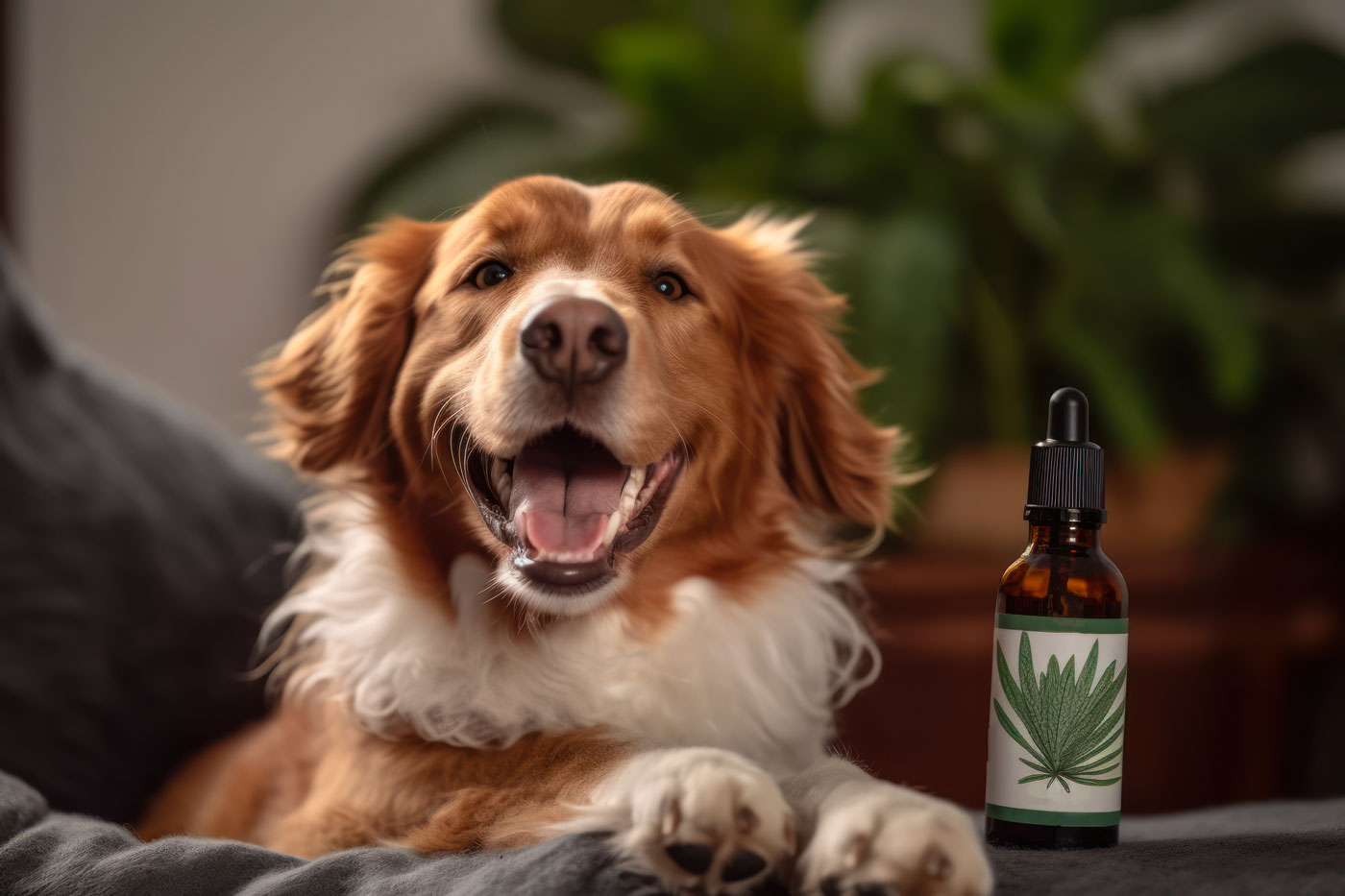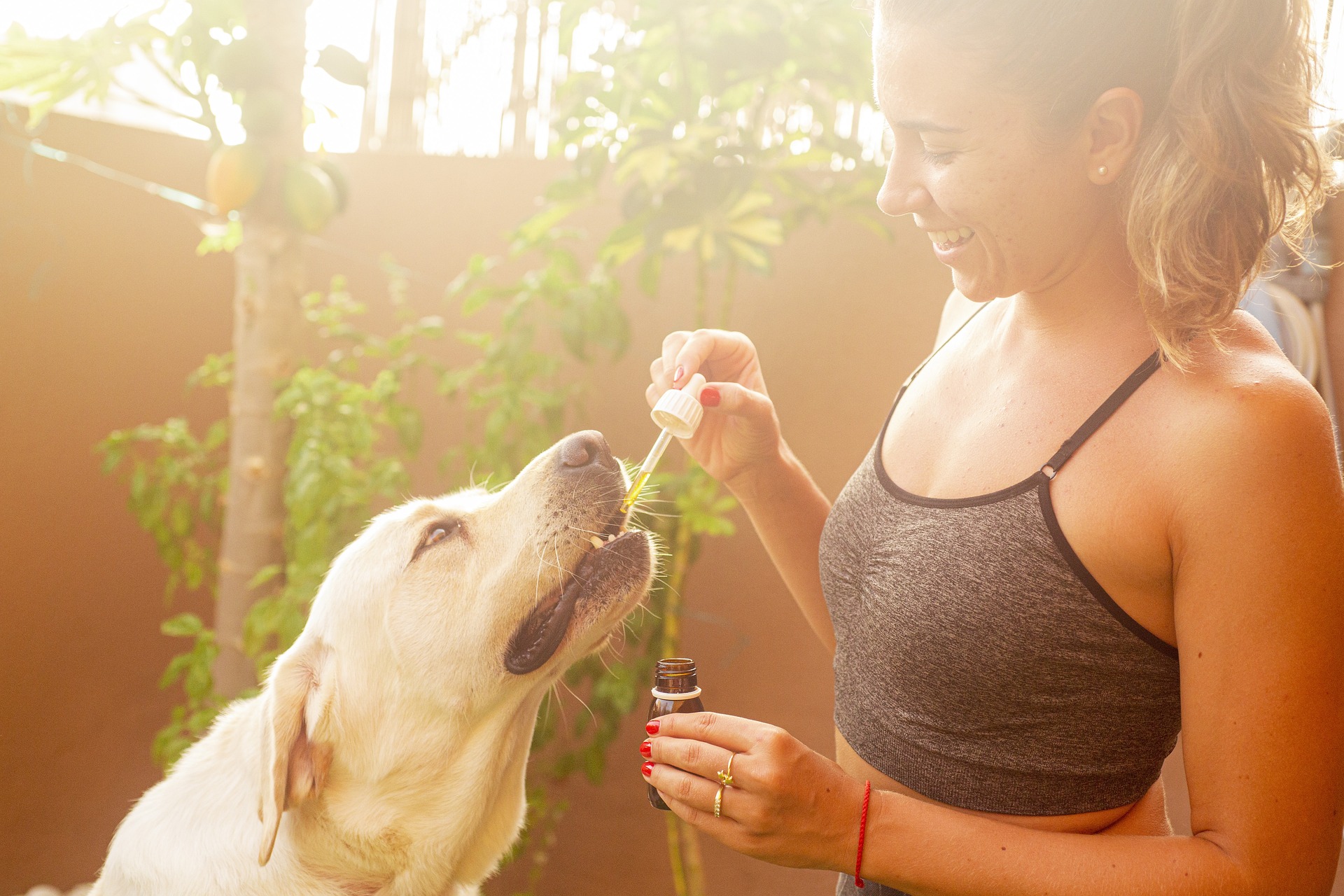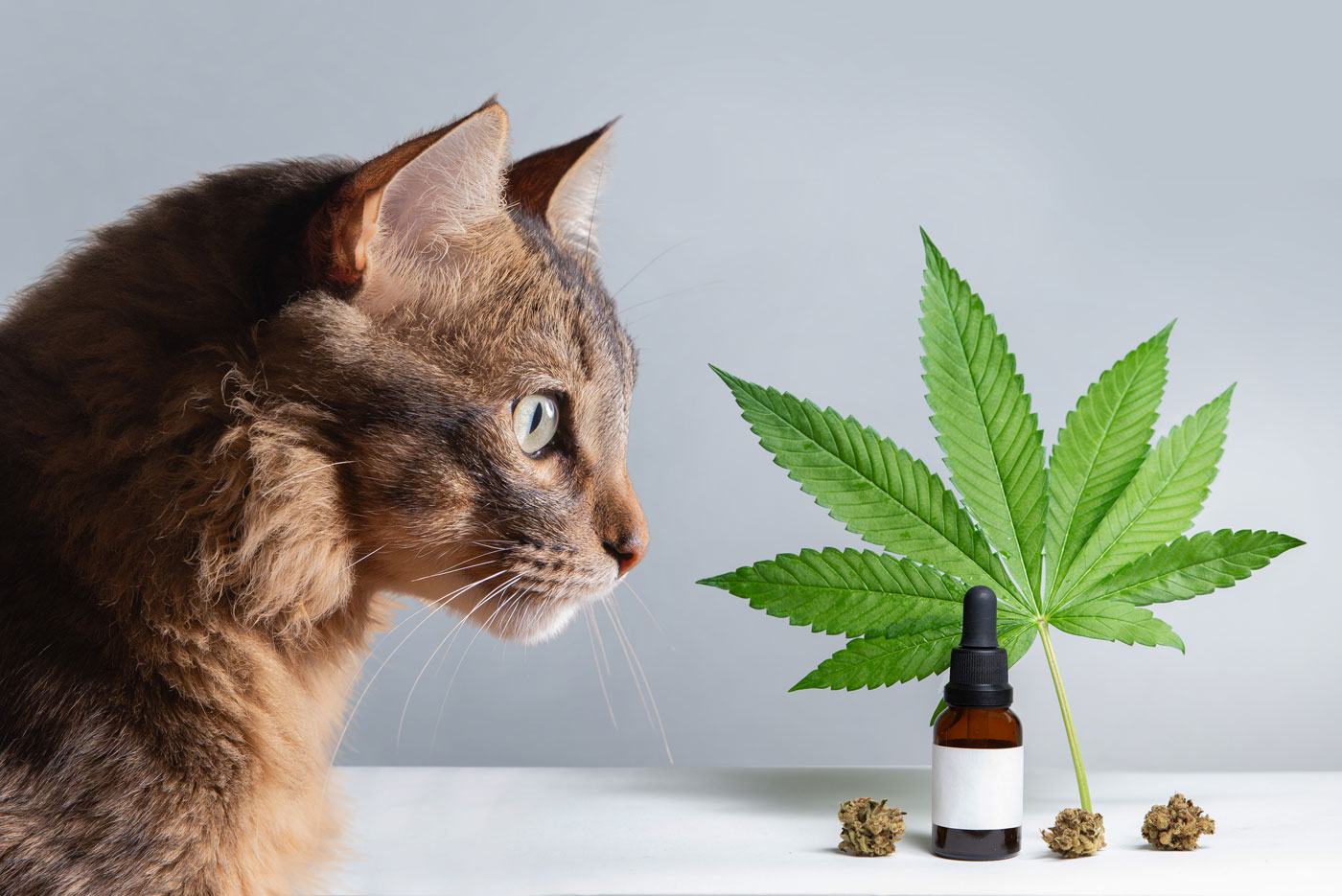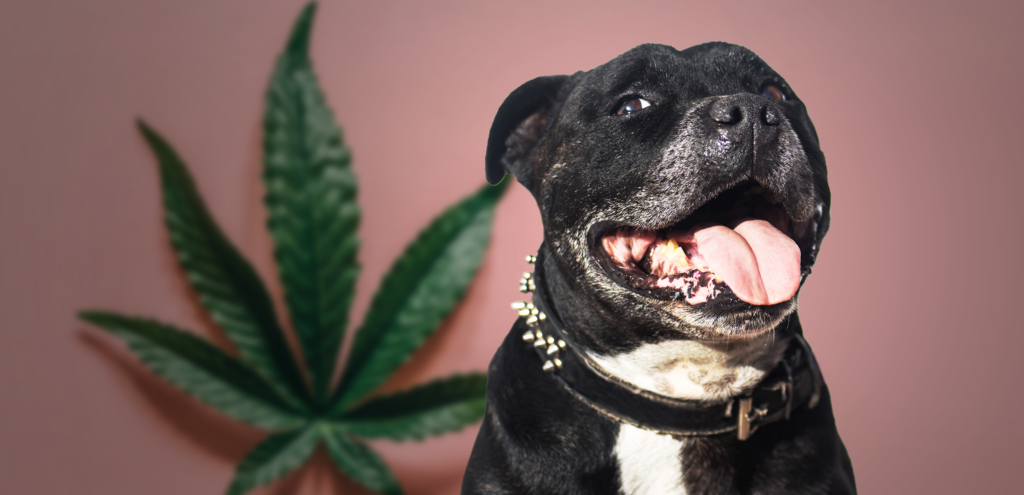How can CBD oil support animals in their well-being? This article explores the potential benefits of CBD oil for pets, reviews the scientific evidence and provides important guidelines on safe use and dosage. Find out how your pet can benefit from the properties of the oil without falling for excessive advertising promises.
The most important facts at a glance
- CBD oil is increasingly being used in veterinary medicine to improve mobility, relieve pain and reduce stress in animals such as dogs, cats and horses.
- The endocannabinoid system (ECS) plays an important role in maintaining bodily functions in animals; CBD can stimulate it and help regulate homeostasis.
- The quality and safety of CBD products for animals must be ensured, including the avoidance of terpenes in cats and compliance with legal THC limits.
CBD oil and its benefits for animals

So could CBD oil also improve your pet’s well-being? Many pet owners report positive experiences. For example, CBD oil can improve mobility in older dogs by relieving pain and inflammation in the joints. CBD can also have a calming effect on animals that suffer from separation anxiety or noise phobias.
In recent years, the importance of CBD oil in veterinary medicine has increased. More and more vets are using it. Pet owners, such as Susanne Gruber from the Hemp and Animal Podcast, confirm the positive effects of CBD on the quality of life of their animals, especially in the case of joint problems.
The endocannabinoid system in animals

But how does CBD oil actually work in animals? Mammals, birds, fish, reptiles, amphibians and even earthworms all have an endocannabinoid system (ECS) that plays a key role in maintaining bodily functions and health. CBD can stimulate the ECS, which can lead to the regulation of homeostasis and the improvement of disturbance signals in animals.
The ECS has a significant impact on the general well-being of animals, including their emotions, perception of pain and mood. It consists of:
- Cannabinoid receptors such as CB1 and CB2
- Endogenous ligands such as anandamides and 2-AG, which are distributed in various cell areas of the body
- The associated enzymes
Areas of application of CBD oil for dogs, cats and horses

The possible applications of CBD oil in animals are diverse. It can be used on dogs, cats and horses to reduce stress, relieve pain and improve mobility. In the following sections, we will take a closer look at three specific areas of application: Anxiety and stress management, pain relief and anti-inflammatory properties, and epilepsy and seizures.
Anxiety and stress management
One of the most common areas of application of CBD oil in animals is the management of anxiety and stress reactions. CBD can help to stimulate certain receptors in the brain and thus provide more balance. This can reduce the feeling of anxiety and alleviate fears in stressful situations.
A study by the Waltham Petcare Science Institute found that CBD has the potential to reduce stress levels in dogs, especially in situations such as being alone and driving. Dog owners report positive experiences when using CBD oil to calm anxious and nervous dogs, especially in stressful situations such as thunderstorms or fireworks.
Pain relief and anti-inflammatory properties
Another important application of CBD oil in animals is pain relief. CBD can block the receptors responsible for the sensation of pain and may also affect TRPV1 receptors and glutamate levels involved in pain and inflammation perception.
In dogs, CBD oil can be used to relieve joint pain and reduce inflammation, while in cats it can support a normal inflammatory response. Dog owners have reported improvements when using CBD oil to relieve pain in their dogs, highlighting the potential benefits of CBD as a gentle treatment option.
Epilepsy and seizures
CBD can also help to reduce the frequency and severity of epileptic seizures in animals. It is assumed that CBD has an effect on the animals’ brains and could alleviate the seizures.
The AKC Canine Health Foundation is currently sponsoring a study to investigate the efficacy of CBD oil in dogs with epilepsy that are resistant to other treatments. This and other research could help to improve the treatment of epilepsy and seizures in animals in the future.
Legal aspects of CBD for animals in Germany
In Germany, strict regulations and guidelines apply to the sale of CBD products for animals. For example, CBD products for animals may not be advertised as medicinal products unless they are approved as such. The sale of CBD products is permitted outside pharmacies, provided that these products are not offered as medicinal products and do not contain any medical recommendations for use.
End users in Germany do not commit a criminal offense when purchasing or possessing small amounts of CBD for personal use without a prescription. It is important to note that the legally permitted THC content in CBD products for animals in Germany is 0.2%, excluding VAT.
Use and dosage of CBD drops for animals
The correct use and dosage of CBD drops for animals is crucial to ensure that the animal gets the best possible benefits from the treatment. It is recommended to start with a low dose of 1 drop and slowly accustom the animal to CBD to avoid side effects.
The dosage of CBD oil depends on the weight of the animal. Smaller animals should start with a lower concentration and larger animals can be given a correspondingly higher dose. CBD can either be dripped directly under the tongue or simply mixed into the food to facilitate absorption. Special CBD oils for dogs are often based on salmon oil, and the cbd oil for dogs is tailored to meet the needs of dogs.
Special considerations for cats and CBD oil

Special care should be taken when using CBD oil in cats. Cat livers do not have the necessary enzymes to metabolize terpenes, which can lead to a potentially toxic accumulation in the liver. Hemp oil containing CBD should therefore be used with caution.
Therefore, CBD oil for cats should not contain terpenes to avoid the risk of terpene poisoning and to protect the cat’s health. When choosing a CBD product for cats, make sure that it is labeled terpene-free to ensure safety and tolerability.
Possible side effects and precautions
Although CBD oil is generally well tolerated and has many positive effects on animal health, there are some potential side effects and precautions to be aware of. Here are some important points:
- CBD should not be administered to animals that are pregnant.
- CBD should not be administered to animals that already suffer from loss of appetite.
- CBD should not be administered to animals that regularly take medication.
It is important to observe these precautions to ensure the health, well-being and vitality of the animals.
It is also important for pet owners to consult with qualified veterinarians, especially since study results suggest that CBD may be valuable as an intervention for acute stress in dogs. An individual assessment of the risks and benefits is essential in every case.
Quality criteria for CBD products for animals
If you decide to give your pet CBD oil, it is important to choose high quality products. In order to guarantee the purity of CBD oils, strict analyses should be carried out for harmful substances such as
- PAH
- Microbiological contamination
- Pesticides
- Heavy metals
- Alpha-toxins
- Terpenes (in cats)
CBD products for animals should be free of contaminants such as plastic, harmful pesticides and chemicals, and synthetic or chemical substances so as not to disrupt the animals’ endocannabinoid system (ECS). When buying CBD products for animals, you should look for reputable retailers who publish independent laboratory results and offer products with recognized seals of approval.
Testimonials and research on CBD oil for animals
Although research into CBD oil for animals is still in its infancy, there are already some promising studies and numerous positive testimonials from animal owners. Research suggests that CBD may slow the growth of cancer cells in dogs and could be explored as an alternative treatment for chronic pain in dogs.
However, pet owners’ experiences with CBD oil are mixed and depend on a variety of factors, including the animal’s individual response to CBD and the specific health issues being treated. Further research could help to better understand these differences and determine optimal dosages and long-term effects.
Summary
In summary, CBD oil can be a promising natural treatment option for a variety of health problems in animals. From relieving pain and inflammation to reducing stress and anxiety – the possible applications are many and varied. Nevertheless, it is important to be careful when using CBD oil on animals and always consult a vet.
Frequently asked questions
Yes, you can give CBD oil to animals, but you should prefer a CBD oil made specifically for animals, which does not contain THC and is not recommended for long-term use in dogs and cats.
CBD can reduce stress in cats, relieve pain and contribute to general calming. The benefits of CBD for cats include increased calmness.
CBD oil can help increase your dog’s appetite and help control vomiting and nausea. It can also help to relax the dog.






